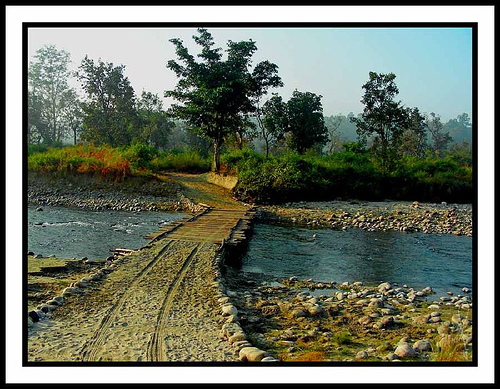Get Youth Involved and They will stay!

With nearly 28 million people, though Nepal is predominantly an agrarian country, migration is increasingly becoming an important livelihood strategy for farm households in rural Nepal. Remittance has emerged as the lifeblood as earnings through agriculture in rural areas is insufficient and the youth prefer to go abroad where they have higher chances of earning more.
A recent Nepals official data reveals that 1.83 percent of total working population has left the home country in the first eight months of the current fiscal year 2012/13. However, by allowing such large scale youth migration for foreign employment, Nepal has wasted one of the most valuable economic resources i.e., human resources, especially youths. It is good for the short term, when industrial and agriculture production is low, but prolonged outflow of workers has left resources unutilized which will be dangerous for future generations.
Internal or international migration can have a positive impact on young people by opening up new opportunities, a path to participate in higher education, a decent job, a chance to gain professional experience or to pursue personal development. While migration of young people it can also pose risks and lead to unacceptable situations, including exploitation and discrimination. Though mobility is an essential feature of todays world as the social structure in the industrialized world has created the need for workers and professionals from other countries the migration of the youth population could be suicidal to a country.
International migration and remittances can act as a catalyst in transforming the subsistence farming sector into a more productive and commercial one by removing some of the constraints it faces. So it is not always associated with youth migration or brain drain but at the same time this phenomenon would be to seek its conversion to brain exchange. Since agricultural graduates can serve as proper technology transfer to farmers whatever they acquired knowledge from foreign land and it is inevitable to promote sustainable agriculture of the 21st century particularly in developing countries.
Engaging youth in agriculture has been a prominent topic recently and has risen up the development agenda, as there is growing concern worldwide that young people have become disenchanted with agriculture. If we can modernize our farming techniques, move towards industrial farming like the West, increase productivity, then agriculture will become more attractive and pull in the huge unskilled workforce and to achieve this they need vocational training and a network of support from the state and financial institutions. For this better services and education, especially designed for the rural areas can contribute to increasing food production and to higher profits by considering comprehensive efforts. Several results show that young professionals play important participative roles in their communities, through local social clubs and young farmers organizations.
In recent times, the information and communication technology (ICT) sector is booming propelled by the rapidly growing usage of mobile phone and internet services. One of the biggest advantages being technology adopter means we can replicate successful development models. We need to adopt various free market reforms, prioritize youth entrepreneurship and mindset-change. Similarly our generation can help introduce new technologies whilst also learning from traditional methods, holding the potential to offer the perfect fusion of new and traditional solutions to some of the biggest challenges.
Mobile phones can help in agriculture and rural development by providing information to farmers about market demand and supply, about market opportunities and much more. Agricultural professionals are more and more concerned with the potential uses of ICT for rural development, while these tools also continue to be popular among young people and it can also help deter young people away from stereotypes of traditional farming and help change their perceptions on agriculture by helping them to view it as an exciting and innovative industry.
There are many challenges ahead for the sector but if young people are offered education in agriculture, a voice at policy level, and in the media, and are engaged with innovations then the agriculture industry can attract youth again. Involving educational administrations, government officials and community parents and leaders in planning, implementing and maintaining curriculum suited to sustainable-life-criteria is crucial- in Nepal, or any other nation of the world.
Picture courtesy: 'Camera baba' aka Udit Kulshrestha - some rights reserved
Related Posts
Comments
By accepting you will be accessing a service provided by a third-party external to https://archive.ypard.net/

